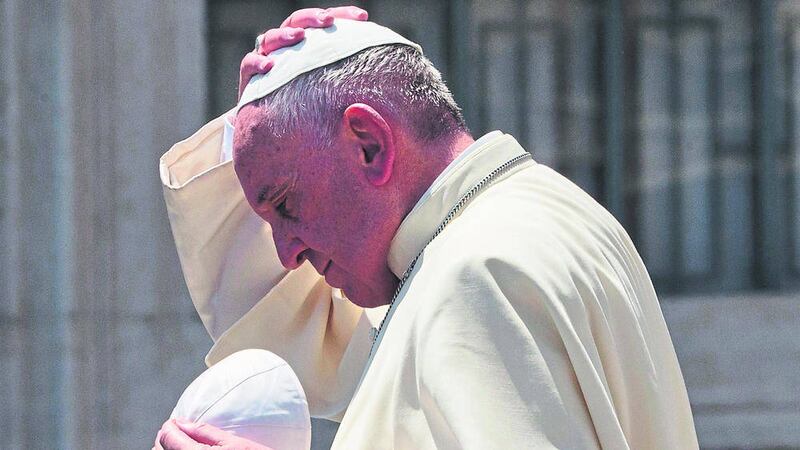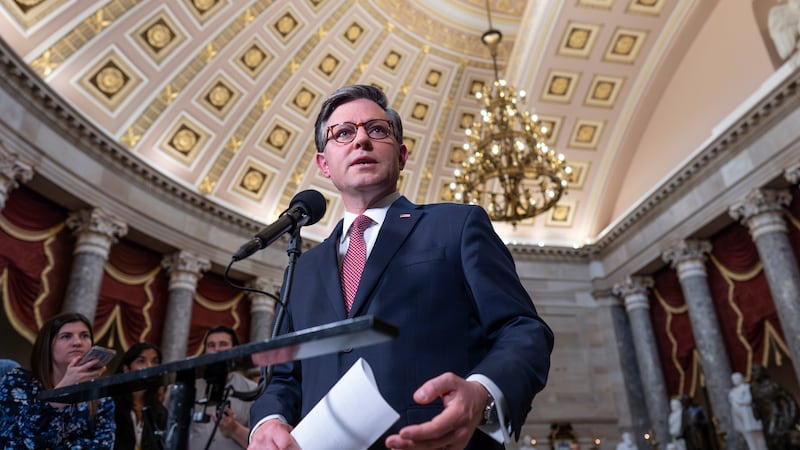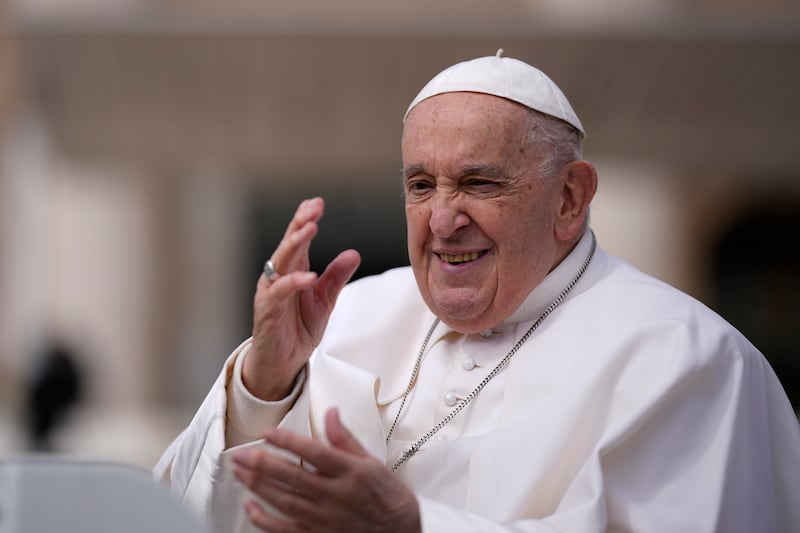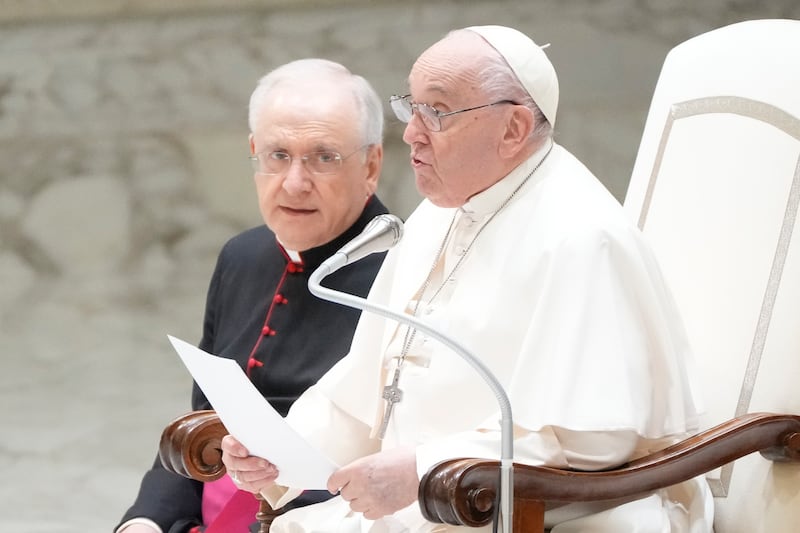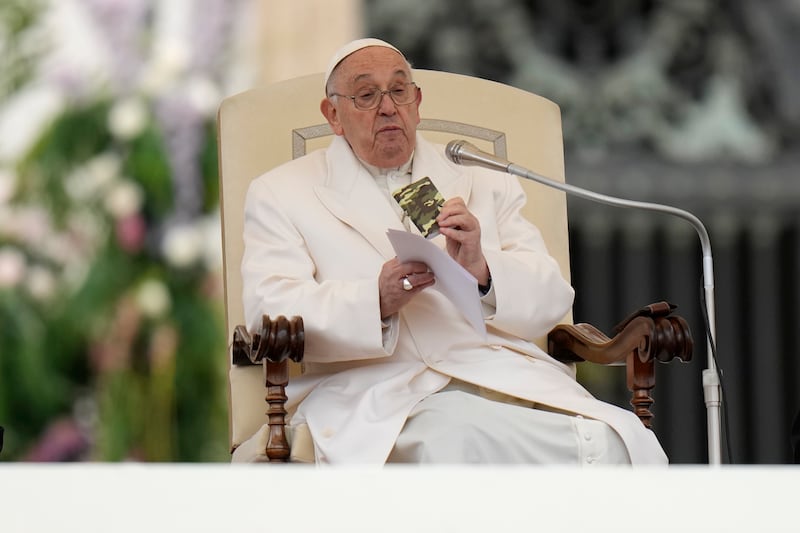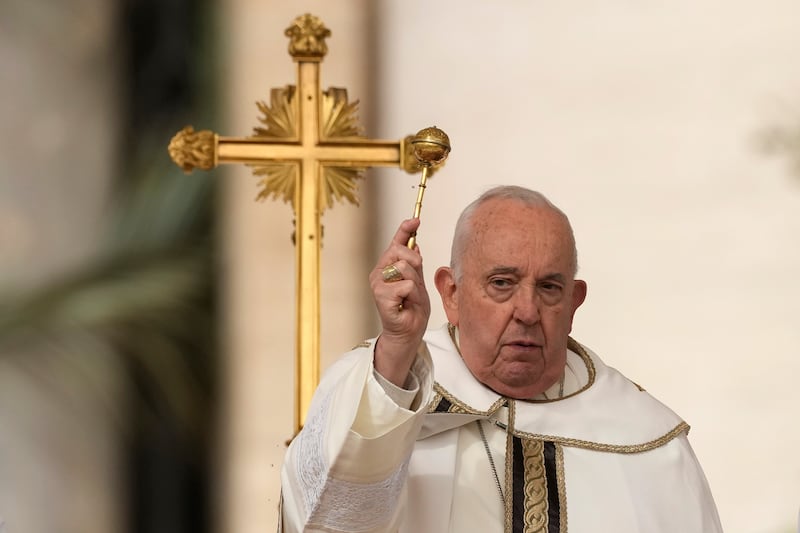LIKE the thudding rainfall which soundtracks an Irish summer, care for the environment has been a thread running through the papacy of Jorge Mario Bergoglio.
That he chose the name Francis was the first obvious tell-tale that mankind's stewardship of creation mattered greatly to this Pope.
There have been many other expressions of this concern since, and it is with a further heavy nod to St Francis of Assisi that he will publish an encyclical focused on the environment this week.
Its title, Laudato Si, which can be translated as "be praised" or "praise be", is a direct reference to a reflection on creation and the natural world written by St Francis in the 13th century and known as the Canticle of the Sun.
Days after his election as Pope in March 2013, Francis explained that one of the reasons he had taken the great saint's name was because he was "the man of poverty, the man of peace, the man who loves and safeguards creation", and commented that: "At this time we don't have a very good relationship with creation, do we?"
It is a theme he has returned to repeatedly.
Speaking of climate change, and what role human activity has played in it, he said, with characteristic bluntness: "I don't know if it is the only cause but mostly, in great part, it is man who has slapped nature in the face."
Francis would obviously much prefer us to embrace the environment rather than slap it; not only because he believes that is best for his fellow-Christians but also because it is for the good of all people, everywhere, regardless of belief.
The encyclical's subtitle, On the Care of Our Common Home, points to this, referring of the Christian concern for the 'common good'.
This concept undergirds Catholic social teaching and speaks of the idea that society should be arranged in such a way that individuals and groups have, as the Second Vatican Council put it, "relatively thorough and ready access to their own fulfilment".
Because climate change and environmental issues are such pressing global concerns, and the consequences of failing to deal with them so potentially catastrophic for future generations, Laudato Si is, says Cardinal Peter Turkson, "fiercely anticipated".
Cardinal Turkson, the Ghanaian cleric who heads the Vatican's Pontifical Council for Justice and Peace, has been heavily involved in the work behind the encyclical and is close to Pope Francis.
Speaking to the Irish News during a visit to Ireland earlier this year, Cardinal Turkson said the Pope was keenly interested in ecology and believed that caring for the environment was a moral issue.
"His pontificate is a blessing, helping us discover our role as a moral conscience of humanity," said the Cardinal, who added that Francis was "a very credible voice because of his own servant leadership by example".
Cardinal Turkson will lead the presentation of the encyclical when it is published in the Vatican at noon on Thursday.
He will be accompanied by a representative of the Ecumenical Patriarchate of Constantinople - Francis considers the Orthodox Church a partner in many initiatives - and Professor John Schellnhuber, a German scientist who founded the Potsdam Institute for Climate Impact Research.
He is also a member of the United Nations Intergovernmental Panel on Climate Change and took part in a summit co-sponsored by the Vatican and the UN in April.
That meeting, held in the Vatican, was an example of the way Pope Francis has worked to build a united front on environmental issues, bringing together a diverse group of religious leaders, Nobel laureates, heads of state and scientists.
The UN-Vatican summit noted: "Nature is a precious gift entrusted to our common care, making it our moral duty to respect rather than ravage the garden that is our home."
UN secretary-general Ban Ki-moon praised the Pope for framing climate change as an urgent moral imperative and said that while neither he nor Francis was a scientist, "what is important is to mobilise the will of the people and to lead the people".
Pope Francis's last significant document, the apostolic exhortation Evangelii Gaudium, might have been about the 'joy of the gospel' and Christian evangelism, but its 'common good' concern about poverty, economic ills and the worst excesses of globalisation captured - or mobilised - the imaginations of those far beyond the walls of the Catholic Church.
He will doubtless be hoping that Laudato Si has a similar impact when it comes to another of the pressing issues of our time and helps to spark conversations about the environment and contribute to that 'mobilisation', particularly with crucial UN climate talks scheduled to begin in Paris in November.
Those talks aim to achieve, for the first time, "a binding and universal agreement on climate, from all the nations of the world" - something which has so far eluded previous summits.
And if Laudato Si can help with that, then Pope Francis will have helped soothe nature's slapped face.
